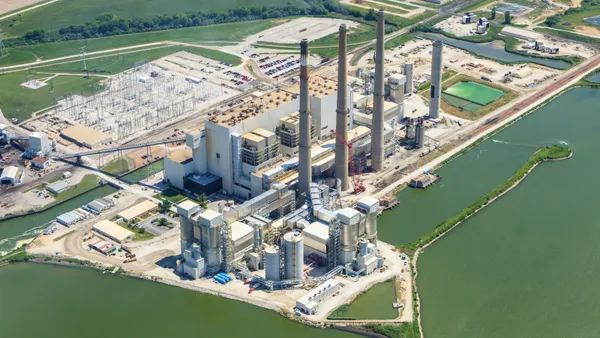Dive Brief:
- A federal judge in the U.S. Court of Federal Claims has awarded Duke Energy $68.5 million in its lawsuit against the federal government, the third such decision finding that the U.S. Department of Energy was in partial breach of contract for failure to store Duke's spent nuclear fuel.
- There have been dozens of similar judgments since the federal government's effort to develop the Yucca Mountain waste repository stalled. Processing and storing the spent fuel was supposed to be done by the government under the terms of a 1983 contract.
- Duke's award covers the same nuclear plant sites in Florida, South Carolina, and North Carolina, that were involved in two prior rounds of litigation. This judgment included costs incurred from 2011 through the end of 2013.
Dive Insight:
The Trump Administration wants to continue development of the national nuclear waste repository Yucca Mountain, in Nevada, but until a permanent solution is worked out nuclear operators continue to sue DOE for te cost of storing the fuel.
Yucca Mountain was canceled by the Obama administration in 2010, and continuing development will require significant capital, both financial and political.
Currently, nuclear operators sue the federal government for breach of contract to cover the costs of storing fuel. So far, there have been more than 70 judgments against the government, resulting in payments to nuclear operators upwards of $6 billion. And that figure is only expected to rise.
DOE has estimated the government’s total liability will be $29 billion by 2022, assuming that the government starts accepting nuclear waste by then. Some estimates put the cost as high as $50 billion.
Duke's award was not a total victory, however. The company claimed $71.5 million, but more than $3 million remains in dispute. Expenses the judge did not award Duke include dry storage system and contract termination costs, expenses to transfer cask pedestals, fuel assembly inspection and debris removal, along with several other issues at the nuclear sites.
Duke's nuclear sites involved in this case include its Crystal River, Robinson, Brunswick, and Harris plants.














